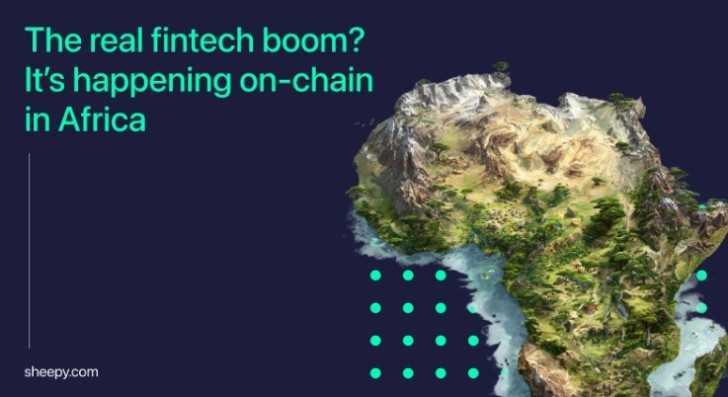- How crypto payment gateways are enabling real commerce
- Legacy doesn’t scale: The banking gap in African economies
- Crypto as infrastructure, not speculation
- Rise of Africa-native fintechs built on-chain
- From local to global: Africa as a case study for emerging market innovation
- Built from the ground, made to last
From mobile-first stablecoin wallets to decentralized remittance networks, the infrastructure is already live. At the heart of this transformation lies one critical component: the crypto payment gateway - a silent driver enabling merchants, platforms, and users to transact across borders and beyond bureaucracy.
How crypto payment gateways are enabling real commerce
Digital finance is not just about holding assets anymore. It’s about moving money in ways that feel instant, fair, and simple. Across Africa, more merchants are starting to accept stablecoins, not because it’s trendy, but because their customers ask for it. Gig workers get paid online. Freelancers take clients from abroad. Small shops want to sell to buyers in other countries. For all of this to work, the old payment rails are too slow and too expensive. What’s needed is a system that doesn’t ask for perfect credit scores or high account fees.
That’s where a well-built cryptocurrency payment gateway becomes essential. It allows people to skip the usual walls and just transact. This kind of tool doesn’t ask a merchant to rebuild their business. It connects directly to what already works - mobile wallets, E-commerce plugins, and even point-of-sale terminals. When the setup is simple, the user doesn’t need to think about what’s happening in the background. The transfer just goes through, and it’s done. That’s the kind of invisibility good tech should offer.
Sheepy crypto is making this possible. It gives businesses a way to accept crypto from customers around the world, including stablecoins like USDT and USDC. It’s not just for tech companies or early adopters. Local sellers, online platforms, and independent workers can use it with minimal friction. By operating through a cryptocurrency payment gateway, Sheepy crypto removes much of the complexity tied to wallets and conversions. It’s built to scale with the business, whether that means a small team selling handmade goods or a growing platform offering digital subscriptions. This isn’t an abstract shift - it’s happening right now, and it’s helping people get paid.
Legacy doesn’t scale: The banking gap in African economies
Across many parts of Africa, people still don’t have access to basic banking. This isn’t a new story. Traditional banks have tried - or at least claimed to try - to solve the problem for years. But walk into a rural town or a crowded city district and you’ll see the same thing: long lines, limited access, and high barriers to entry. It’s not just about missing infrastructure. It’s also about systems that don’t make sense for how people actually live and earn.

Banking services often assume regular income and formal employment. That’s far from reality for most. People work gig jobs, sell goods, or rely on short-term contracts. They don’t have the paperwork or time to navigate old systems. And then there’s trust - or lack of it. After years of bank failures, inflation, and disappearing funds, many simply don’t believe institutions are on their side. So, they turn to cash, mobile wallets, or informal groups. These work, sort of. But only up to a point.
When it comes to sending or receiving money across borders, the system really breaks down. That’s where newer tools - especially blockchain - are gaining attention.
A cryptocurrency payment gateway can offer an alternative. It helps people move money without banks getting in the way. That’s not just useful - it’s transformative.
For merchants, freelancers, and families, a cryptocurrency payment gateway can mean faster transactions and fewer fees. And with local adoption growing, it might be the first time some users feel part of something larger than their local market. Not perfect, but finally something that works on their terms.
Crypto as infrastructure, not speculation
When people hear about crypto, they often think of price charts and risky investments. But in many African countries, crypto is not about gambling with value. It’s about solving problems. People use stablecoins like USDT and USDC not to trade, but to hold value and pay for goods. These digital dollars protect users from local inflation, which can destroy savings in just a few weeks. For many, using crypto is not a choice driven by hype. It’s a way to survive.
Across the continent, mobile wallets have become more than just convenience. They are the gateway to the financial system for millions. But traditional mobile money platforms often limit what users can do. That’s where crypto-powered wallets step in. With them, users can store stablecoins, send cross-border payments, or pay freelancers in another country. This opens new doors that banks and older apps still keep shut. More importantly, it brings flexibility. A person can now move between currencies, services, and even jobs without losing control of their money.
Governments are starting to notice. Some have tried to stop the growth of crypto, but others see its value. Nigeria launched its own digital currency. Kenya’s central bank has studied blockchain use for remittances. Ghana is exploring a national e-currency. But while regulators debate, people keep moving forward. And one key tool that supports this new system is the cryptocurrency payment gateway. It connects people, platforms, and services into a single, usable flow. A cryptocurrency payment gateway lets local businesses accept stablecoins, send payments, or even build new products on top of this tech. With low fees and real-time speed, the cryptocurrency payment gateway becomes not just a feature but a foundation. That’s how infrastructure should work - simple, useful, and ready when needed.
Rise of Africa-native fintechs built on-chain
African tech startups are no longer just copying solutions from the West. They are designing tools that speak directly to local needs. Yellow Card, for example, began by offering simple crypto access. But today, it helps people move money across borders, protect against inflation, and run businesses. That kind of growth shows what’s possible when the goal isn’t speculation but access. Local developers see the gaps in the system. They’re not waiting for outside companies to fix them. They’re building what their communities need right now.
Companies like VALR in South Africa offer more than trading. They’ve become trusted platforms where users can store value and earn income. Bitmama in Nigeria lets people send money fast and use digital cards to make purchases. These aren’t luxury services. They are daily tools that help people work, save, and stay connected in hard times. Many of these platforms succeed because they combine local insight with open-source tech. They are small enough to listen, but bold enough to innovate. Venture capital is paying attention. Investors are now seeing Africa not as a risky experiment but as a serious testbed for financial change.
Behind many of these services, you’ll often find one thing in common - the need for a cryptocurrency payment gateway that supports smooth, reliable transactions. Without it, users and merchants would face too many technical barriers. A cryptocurrency payment gateway helps these platforms scale by offering fast payments, local currency conversions, and stablecoin compatibility. For startups working in fragile economies, this makes all the difference. They can spend less time solving backend problems and more time reaching people. In a space where every transaction counts, that kind of support turns ambition into impact.
From local to global: Africa as a case study for emerging market innovation
Africa is often treated as a place of potential, but rarely as a model. That’s changing. What’s happening across its fintech and crypto landscape is no longer just interesting - it’s instructive. Many African startups are building first for local problems: currency instability, cross-border trade, and limited access to banks. But in solving those problems, they’re designing systems that work better than the old ones. These systems don’t need perfect infrastructure to function. They just need connectivity and a reason to exist. That reason is usually a necessity.

As regions in Latin America and Southeast Asia face similar barriers, they’re watching what’s working in Africa. The success of stablecoin adoption here has shown that people want digital money they can trust. But trust doesn’t come from branding - it comes from reliability. And that reliability is often delivered through a cryptocurrency payment gateway that does exactly what it promises.
No hidden steps, no waiting days, no conversions that drain value. Just a way to send and receive money, even across borders, even in weak economies.
This model of doing more with less is powerful. Developers and entrepreneurs in Ghana or Kenya aren’t just copying Western systems - they’re leapfrogging them. Their tools are lighter, faster, and more open. In some ways, they resemble early internet thinking: decentralized, modular, and made for growth. A cryptocurrency payment gateway fits into this model as a neutral layer. It connects wallets, platforms, and users without locking them into one vendor. It can work for one-person shops or regional ecosystems. As this approach spreads, the idea of what a financial system should look like may shift. A cryptocurrency payment gateway, once seen as a niche product, could end up being the glue that holds a more open global economy together.
Built from the ground, made to last
What’s happening in Africa isn’t a fintech experiment. It’s a full shift in how people access and move money. Tools are being shaped not in labs, but in markets, villages, and online chat groups. They reflect real needs, not theories. The result is a system that’s lighter, faster, and closer to the people it serves. This isn’t about chasing the next big thing - it’s about fixing what never worked. And in the process, Africa is quietly building a financial future that others may soon follow, not out of charity, but out of necessity.
 Editorial staff
Editorial staff

 Editorial staff
Editorial staff


